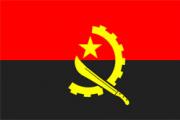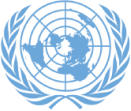SECURITY COUNCIL
Open Debate
Maintenance of International Peace and Security:
Peace operations – Facing asymmetric Threats
7 November 2016
Statement
Mr. President,
We start by congratulating Senegal for assuming the presidency of the Security Council and commend the Senegalese delegation for organizing this timely debate on asymmetrical threats faced by UN Peace Operations - an issue of crucial importance for the performance and future of peace keeping missions.
We welcome the distinguished Minister of Foreign Affairs and Senegalese abroad of Senegal, Mr. Mankeur Ndiaye, for presiding over this important debate. We are grateful to the UN Secretary-General, Mr. Ban Ki-Moon, the Secretary-General of the Organization Internationnale de la Francophonie, Ms. Michaelle Jean, the Assistant Secretary-General and Director of the Counter-Terrorism Executive Directorate, Mr. Jean Paul Laborde for their insughtful remarks.
Mr. President,
We acknowledge with great concern the increased targeting of peace-keeping missions, amidst asymmetric conflicts, involving government forces and non-state armed groups, including extremist and terrorist organizations. Such tactics, most often in the form of hostage takings, suicide bombings and the use of improvised explosive devices are fueled by radical extremism, intolerance, hatred or sheer lack of respect for fundamental human rights.
This leads to an extremely complex and unsafe environment for the UN Peacekeeping Missions to effectively and successfully implement their mandates on the protection of civilians and the mission´s integrity, the promotion of peace solutions and political processes, and the institutional stabilization programs in support to the rule of law, judicial, security and defense sector reform, DDR programs and prevention of radicalization, among others.
The High-level Independent Panel on Peace Operations clearly asserted the inability of UN Peacekeeping Missions to engage in military counter-terrorism operations, due to its lack of aptness for such assignments. However, peace-keeping operations, most of them operating in hostile environments, are required to deliver, forcing a review of their capacity to operate safely and effectively, especially in the backdrop of a perceived change of UN policy, seemingly evolving from finding exit strategies for the peace-missions, to strategies for holding fast, a posture which implies adopting policies dealing with practical challenges arising from complex environments and preventive efforts to deal with them.
First and foremost, these preventive efforts should target violent extremism. Peace-keeping and Special political missions must find political solutions to violent extremism, be able to talk to all actors and try to identify, amid the extremists, more moderate voices, on which to rely to eventually advance with political processes.
In his Plan of Action to prevent violent extremism the Secretary-General recommended to member States that they integrate preventing violent extremism into relevant activities of UN peacekeeping operations and special political missions in accordance with their mandates, which calls for training, by troop contributing countries of their personnel in dealing with this issue
Despite the principled fact that confrontation is outside the scope of peace operations, military tools must not be discarded, and be used, if necessary, to counter violent extremism, particularly in Missions with protection of civilians mandates.
Another crucial aspect of prevention regards the provision of assistance to DDR processes and to the Security and Defense Sector Reform, in case the peace missions are to develop exit strategies, which are possible only and when consistent programs, empowering national armed, defense and security forces are effectively in place and ready to deliver.
In fact, we consider crucial that redoubled efforts and adequate resources are assigned to the defense and security sector reform, which must be the object of major attention in the peace-keeping mandates. The countries recipient of peace-keeping missions must be bestowed with armed and security forces able to face the threat of terrorists and extremists, and permit the formulation of the peace-mission´s exit strategies.
The Working Group on Peace-keeping operations, under Chad´s Chairmanship, highlighted in 2015, that the deteriorating security environment in which peace operations are deployed, characterized by high intensity conflict, the use of IEDs, the terrorist´s weapon of choice, could discourage Member States from contributing to peace operations, due to the rising risks and threats of such devises.
In Mali and Somalia, they became a major hindrance to the implementation of peacekeeping mandates and a major safety issue to the protection of civilians.
Angola supports the establishment of a comprehensive C-IED/Asymmetrical Threat approach as a strategy framework to this deadly threat, as this mechanism might help prevent the use of vehicle borne IEDs and suicide attacks against UN Personnel and civilians.
Mr. President,
In conclusion, although UN peace missions are not suited to engage in counterterrorism, the UN cannot turn its back when faced with asymmetric threats, and is entitled to respond to its core mandate of protecting civilians and in facilitating political processes.
Some areas for strategic and operational improvements are identified, such as a better understanding of the context and the planning of missions, including through cooperation with regional organizations; clear mandates, appropriate postures, adequate resourcing and capacity to operate in hostile environments – to be achieved through better cooperation between the Security Council, the UN Secretariat and TCCs; special emphasis be laid on Troop Contributing Countries (TCCs) and host nations capabilities, appropriate support and pre-deployment training; greater and innovative cooperation between peacekeeping operations and counter-terrorism bodies; develop capacities of intelligence gathering, well integrated in the overall mission structure as a crucial component for the safety of peacekeepers and the overall success of peace-operations; finally, the establishment of an effective connection and relationships with the native populations, as a central feature of the mission's mandates.
Mr. President,
Angola believes that such a concerted effort and a holistic approach by peacekeeping missions and peace building agencies coupled with the support from the host nations’ civil society and the international community at large, and by shifting the focus from military solutions to national political dialogue will gradually generate solutions to these asymmetrical threats.
However, we insist in the absolute need to strengthen capacities of the national defense and security forces as the prerequisite for a sustained solution to the security threats facing these nations.Thank you.


